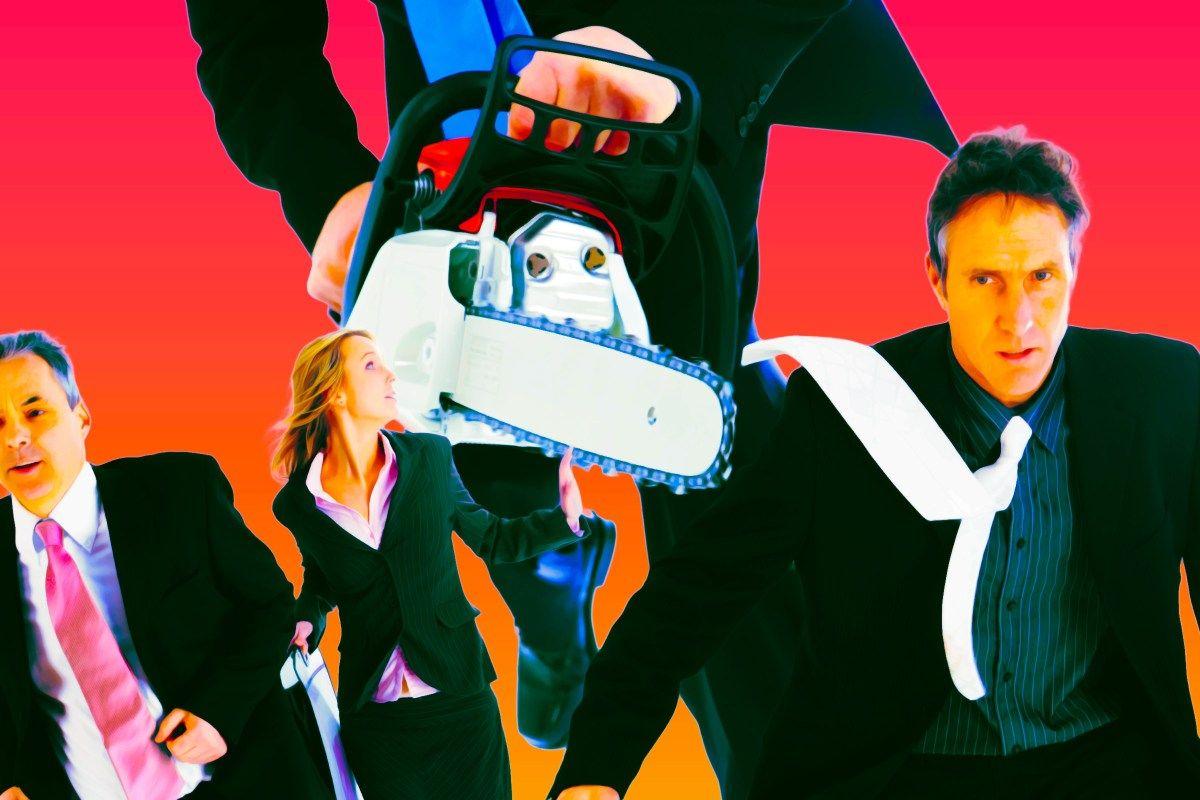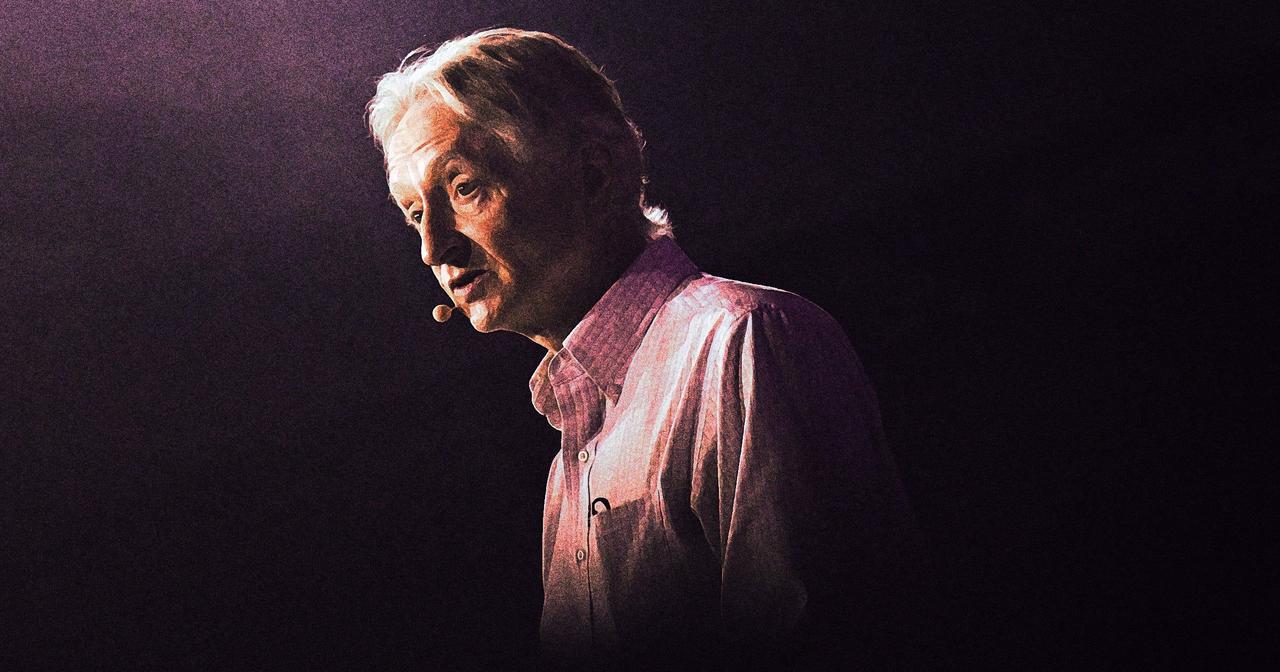Ray Dalio Warns of AI-Driven Inequality, Calls for Redistribution Policy
2 Sources
2 Sources
[1]
Ray Dalio calls for 'redistribution policy' when AI and humanoid robots start to benefit the top 1% to 10% more than everyone else | Fortune
Legendary investor Ray Dalio, founder of Bridgewater Associates, has issued a stark warning regarding the future impact of artificial intelligence (AI) and humanoid robots, predicting a dramatic increase in wealth inequality that will necessitate a new "redistribution policy". Dalio articulated his concerns, suggesting that these advanced technologies are poised to benefit the top 1% to 10% of the population significantly more than everyone else, potentially leading to profound societal challenges. Speaking on "The Diary Of A CEO" podcast, Dalio described a future where humanoid robots, smarter than humans, and advanced AI systems, powered by trillions of dollars in investment, could render many current professions obsolete. He questioned the need for lawyers, accountants, and medical professionals if highly intelligent robots with PhD-level knowledge become commonplace, stating, "we will not need a lot of those jobs." This technological leap, while promising "great advances," also carries the potential for "great conflicts." He predicted "a limited number of winners and a bunch of losers," with the likely result being much greater polarity. With the top 1% to 10% "benefiting a lot," he foresees that being a dividing force. He described the current business climate on AI and robotics as a "crazy boom," but the question that's really on his mind is: why would you need even a highly skilled professional if there's a "humanoid robot that is smarter than all of us and has a PhD and everything." Perhaps surprisingly, the founder of the biggest hedge fund in history suggested that redistribution will be sorely needed. "There certainly needs to be a redistribution policy," Dalio told host Steven Bartlett, without directly mentioning universal basic income. He clarified that this will have to more than "just a redistribution of money policy because uselessness and money may not be a great combination." In other words, if you redistribute money but don't think about how to put people to work, that could have negative effects in a world of autonomous agents. The ultimate takeaway, Dalio said, is "that has to be figured out, and the question is whether we're too fragmented to figure that out." Dalio's remarks echo those of computer science professor Roman Yampolskiy, who sees AI creating up to 80 hours of free time per week for most people. But AI is also showing clear signs of shrinking the jobs market for recent grads, with one study seeing a 13% drop in AI-exposed jobs since 2022. Major revisions from the Bureau of Labor Statistics show that AI has begun "automating away tech jobs," an economist said in a statement to Fortune in early September. Dalio said he views this technological acceleration as the fifth of five "big forces" that create an approximate 80-year cycle throughout history. He explained that human inventiveness, particularly with new technologies, has consistently raised living standards over time. However, when people don't believe the system works for them, he said, internal conflicts and "wars between the left and the right" can erupt. Both the U.S. and UK are currently experiencing these kinds of wealth and values gaps, he said, leading to internal conflict and a questioning of democratic systems. Drawing on his extensive study of history, which spans 500 years and covers the rise and fall of empires, Dalio sees a historical precedent for such transformative shifts. He likened the current era to previous evolutions, from the agricultural age, where people were treated "essentially like oxen," to the industrial revolutions where machines replaced physical labor. He said he's concerned about a similar thing with mental labor, as "our best thinking may be totally replaced." Dalio highlighted that throughout history, "intelligence matters more than anything" as it attracts investment and drives power. Despite the "crazy boom" in AI and robotics, Dalio's outlook on the future of major powers like the UK and U.S. was not optimistic, citing high debt, internal conflict, and geopolitical factors, in addition to a lack of innovative culture and capital markets in some regions. While personally "excited" by the potential of these technologies, Dalio's ultimate concern rests on "human nature". He questions whether people can "rise above this" to prioritize the "collective good" and foster "win-win relationships," or if greed and power hunger will prevail, exacerbating existing geopolitical tensions. Not all market watchers see a crazy boom as such a good thing. Even OpenAI CEO Sam Alman himself has said it resembles a "bubble" in some respects. Goldman Sachs has calculated that a bubble popping could wipe out up to 20% of the S&P 500's valuation. And some long-time critics of the current AI landscape, such as Gary Marcus, disagree with Dalio entirely, arguing that the bubble is due to pop because the AI technology currently on the market is too error-prone to be relied upon, and therefore can't be scaled away. Stanford computer science professor Jure Leskovec told Fortune that AI is a powerful but imperfect tool and it's boosting "human expertise" in his classroom, including the hand-written and hand-graded exams that he's using to really test his students' knowledge.
[2]
Ray Dalio Warns AI Will Create Unprecedented Inequality: 'Limited Number Of Winners' - Microsoft (NASDAQ:MSFT), NVIDIA (NASDAQ:NVDA)
Ray Dalio, founder of Bridgewater Associates, warned on Thursday that artificial intelligence will lead to unprecedented inequality, benefiting only the wealthiest 1% to 10% of Americans, while displacing millions of workers across various industries. Speaking on "The Diary of the CEO" podcast, the billionaire hedge fund manager acknowledged AI as a "truly fantastic" tool but cautioned that it would cause a significant economic divide, according to a Business Insider report.. AI Job Displacement Threatens Professional Classes "There'll be a limited number of winners and a bunch of losers," Dalio said. "It's going to create much greater polarity, which we're seeing through the system." See Also: Why BigBear.ai Stock Is Moving After Hours The founder of the world's largest hedge fund, which was founded in 1975, cautioned that humanoid robots and AI could replace professionals like accountants, doctors, and lawyers. He predicted that this technological change would lead society to struggle over what roles people should take on. Redistribution Policy Needed Beyond Basic Income Dalio emphasized that traditional wealth redistribution won't solve the crisis. "Certainly there needs to be a redistribution policy," he said. "I don't think that's just a redistribution of money policy because uselessness and money may not be a great combination." The comments align with warnings from OpenAI CEO Sam Altman and AI pioneer Geoffrey Hinton, who have advocated for universal basic income models. However, billionaire Mark Cuban offers a contrasting view, urging next-generation workers to "learn all you can about AI" and seize implementation opportunities rather than await policy solutions. Dalio expressed concern that American society may be "too fragmented" to implement effective solutions. Market Implications For Investors The warning comes as AI stocks continue driving market gains, with companies like NVIDIA Corporation NVDA and Microsoft Corporation MSFT benefiting from the technology boom. Dalio's inequality concerns suggest potential regulatory and taxation risks for AI-focused investments as policymakers grapple with societal impacts. Read Next: Adobe's CEO Calls AI Its 'Biggest Opportunity' In Decades As Segment Revenues Surpass $5 Billion: 'We Want AI Infused In Every Dollar of Revenue' Photo courtesy: Shutterstock Disclaimer: This content was partially produced with the help of AI tools and was reviewed and published by Benzinga editors. MSFTMicrosoft Corp$508.761.55%Stock Score Locked: Want to See it? Benzinga Rankings give you vital metrics on any stock - anytime. Reveal Full ScoreEdge RankingsMomentum73.36Growth97.84Quality65.27Value11.95Price TrendShortMediumLongOverviewNVDANVIDIA Corp$177.770.34%Market News and Data brought to you by Benzinga APIs
Share
Share
Copy Link
Legendary investor Ray Dalio predicts AI and humanoid robots will significantly benefit the top 1-10%, potentially leading to societal challenges and the need for a new redistribution policy.

AI's Impact on Wealth Inequality
Ray Dalio, the legendary investor and founder of Bridgewater Associates, has issued a stark warning about the future impact of artificial intelligence (AI) and humanoid robots on society. Speaking on "The Diary Of A CEO" podcast, Dalio predicted that these advanced technologies would significantly benefit the top 1% to 10% of the population more than everyone else, potentially leading to profound societal challenges
1
.Dalio described a future where highly intelligent robots with PhD-level knowledge could render many current professions obsolete, questioning the need for lawyers, accountants, and medical professionals. He stated, "We will not need a lot of those jobs," highlighting the potential for "great advances" but also "great conflicts"
1
.The Need for Redistribution Policy
In light of these predictions, Dalio emphasized the necessity for a new "redistribution policy." He clarified that this policy should go beyond just redistributing money, as "uselessness and money may not be a great combination"
2
. The billionaire hedge fund manager stressed the importance of figuring out how to put people to work in a world of autonomous agents1
.Dalio's comments align with warnings from other tech leaders like OpenAI CEO Sam Altman and AI pioneer Geoffrey Hinton, who have advocated for universal basic income models. However, billionaire Mark Cuban offers a contrasting view, urging next-generation workers to "learn all you can about AI" and seize implementation opportunities rather than await policy solutions
2
.Historical Context and Future Implications
Drawing on his extensive study of history, Dalio likened the current era to previous transformative shifts, such as the transition from the agricultural age to the industrial revolutions. He expressed concern about mental labor being replaced, stating, "Our best thinking may be totally replaced." Dalio highlighted that throughout history, "intelligence matters more than anything" as it attracts investment and drives power
1
.Despite the "crazy boom" in AI and robotics, Dalio's outlook on the future of major powers like the UK and U.S. was not optimistic. He cited high debt, internal conflict, and geopolitical factors as additional concerns. While personally "excited" by the potential of these technologies, Dalio's ultimate concern rests on "human nature" and whether people can prioritize the "collective good" over greed and power hunger
1
.Related Stories
Market Implications and Critiques
Dalio's warnings come as AI stocks continue to drive market gains, with companies like NVIDIA Corporation and Microsoft Corporation benefiting from the technology boom. His inequality concerns suggest potential regulatory and taxation risks for AI-focused investments as policymakers grapple with societal impacts
2
.However, not all market watchers share Dalio's perspective. Some, like OpenAI CEO Sam Altman, have likened the AI boom to a "bubble" in some respects. Goldman Sachs has calculated that a bubble popping could wipe out up to 20% of the S&P 500's valuation. Critics like Gary Marcus argue that the current AI technology is too error-prone to be relied upon, suggesting that the bubble may be due to pop
1
.References
Summarized by
Navi
Related Stories
Anthropic CEO Warns AI Wealth Concentration Could Break Society as Cofounders Pledge 80% of Fortune
27 Jan 2026•Business and Economy

Dario Amodei warns AI risks are 'almost here' in 19,000-word essay calling out AI companies
26 Jan 2026•Policy and Regulation

AI 'Godfather' Geoffrey Hinton Warns Tech Giants Must Replace Human Jobs to Profit from Massive Investments
02 Nov 2025•Business and Economy

Recent Highlights
1
Pentagon threatens to cut Anthropic's $200M contract over AI safety restrictions in military ops
Policy and Regulation

2
ByteDance's Seedance 2.0 AI video generator triggers copyright infringement battle with Hollywood
Policy and Regulation

3
OpenAI closes in on $100 billion funding round with $850 billion valuation as spending plans shift
Business and Economy





